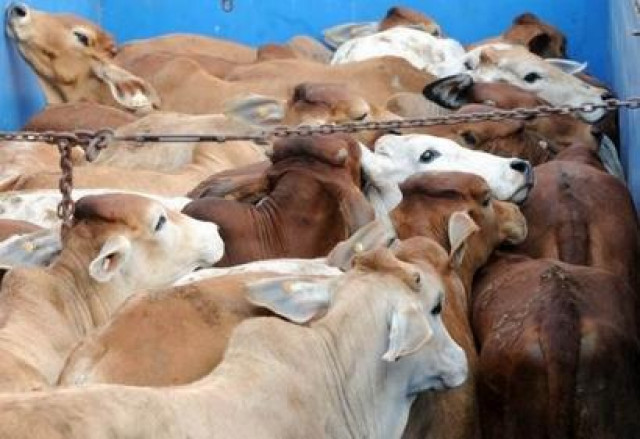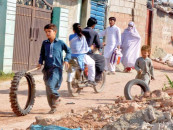Cattle prices surge by up to 70%
Sacrificial animals' traders cite soaring costs; buyers decry lack of govt oversight

With Eidul Azha just around the corner, the sale of sacrificial animals has gathered pace across the metropolitan city, with markets seeing an uptick in activity. However, buyers are facing steep price hikes, with the cost of sacrificial animals surging by 50 to 70 per cent compared to last year.
In various cattle markets of the metropolis, the starting price for goats is now around Rs40,000, while heifers - regardless of weight - are hardly available for less than Rs140,000. Last year, a low-weight heifer could still be purchased for under Rs100,000 were now fetching Rs200,000 or more.
Buyers are increasingly frustrated at the lack of official regulation in animal pricing. Traders are setting prices arbitrarily, leaving buyers to negotiate deals through bargaining.
Traders attribute the increase in prices to several factors, including the rising cost of animal feed, transportation, and other logistical expenses. "The cost of fodder alone has surged by over 50 per cent," Kashif Qureshi, a trader, told The Express Tribune. He added that animals are bought from larger markets in Punjab and Sindh, and medium-sized traders then transport them to Karachi - incurring fuel, tax, and miscellaneous expenses.
"The total cost accumulates through various stages - purchasing from big traders, transportation to Karachi, and maintenance at the local markets, including lighting and security," Qureshi added. "Only after accounting for all these factors do traders add their margin, which can range from Rs15,000 to Rs50,000 for smaller animals and Rs50,000 to Rs200,000 or more for larger animals."
Traders say that the pricing of animals is also influenced by breed, appearance, and weight. "While 13 government-designated cattle markets operate in Karachi, animals are also being sold informally in various neighbourhoods," said another trader, Arif Qureshi.
He explained that cows, heifers, and camels are among the large animals available, but due to the current price surge, many middle-income families are struggling to afford them. Heifers of average weight are now selling between Rs200,000 and Rs300,000, while heavier, premium animals are priced between Rs400,000 and Rs1 million. Elite buyers are purchasing high-end animals ranging from Rs1.2 million to Rs2 million or more.
As Eidul Azha nears, buyers are increasingly visiting the markets during evening and nighttime hours, typically seeking medium-sized heifers for around Rs200,000. Most animals are sourced from various districts across Punjab.
In the goat market, prices have also risen sharply. Saifuddin, a goat trader, told The Express Tribune that medium-weight goats that were previously sold for Rs30,000 to Rs35,000 are now priced at Rs50,000 to Rs60,000. The starting price for goats is around Rs40,000, with some reaching up to Rs300,000, depending on breed and build.
Rams and sheep are similarly priced, ranging from Rs40,000 to Rs200,000 or more. Their valuation is also driven by factors such as weight, breed, and appearance, according to trader Rashid Saleem.
Camel trader Ibrahim Din spoke about a growing trend in camel sacrifices over the past two years, though it remains relatively limited. He said camels brought in from different districts of Sindh now cost Rs300,000 and above.
Karachiites have voiced their concern over the sharp rise in prices. Saeed-ul-Zafar from Nazimabad said the same heifer he purchased for Rs150,000 last year cost him Rs240,000 this time. "There needs to be a government-regulated pricing mechanism for sacrificial animals," he urged.
Similarly, Asif Abbasi from Saddar criticised the lack of oversight, saying, "Traders are charging arbitrary prices. I bought a goat for Rs60,000 this year, which cost me just Rs35,000 last Eid."
With no formal pricing framework in place, people are left to navigate the inflated market through direct negotiations with traders - hoping to uphold the tradition of sacrifice amidst economic challenges.





















COMMENTS
Comments are moderated and generally will be posted if they are on-topic and not abusive.
For more information, please see our Comments FAQ